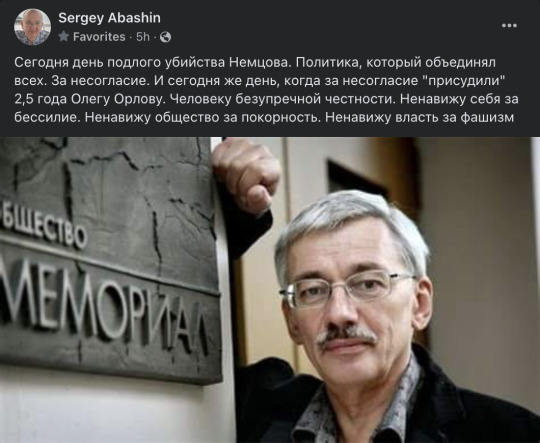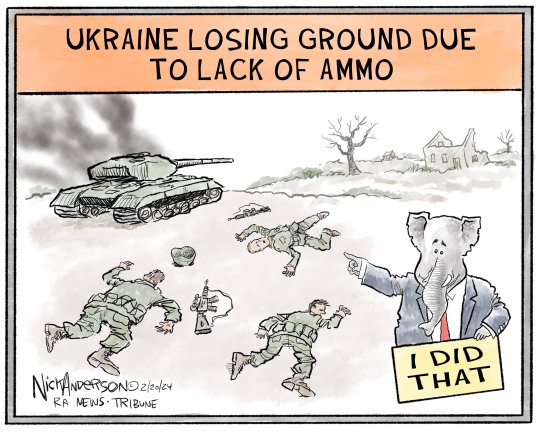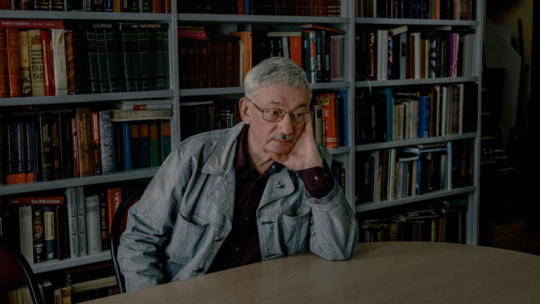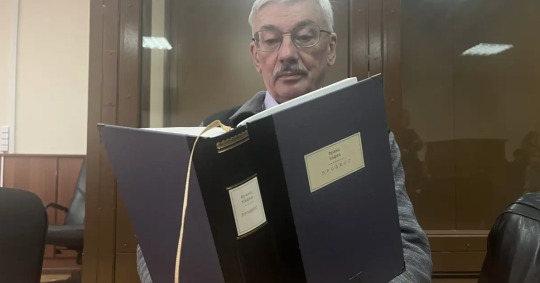#Oleg orlov
Explore tagged Tumblr posts
Text
Russia just freed SIXTEEN political prisoners in a prisoner swap with the West!
Among the released political prisoners are:
Oleg Orlov, a longtime dissident and the co-chair of Memorial, an organization created in 1989 to chronicle the USSR's human rights abuses and educate Russians about the history of political repression;
Sasha Skochilenko, an LGBTQ artist who was imprisoned in April 2022 for replacing price tags at grocery stores with data about Russian destruction in Ukraine, deemed treasonous under Russia's "fake news" law;
Vladimir Kara-Murza, a political dissident who was fundamental in bringing about the Magnitsky Act to sanction Russian human rights abusers, and who was poisoned twice by the KGB in attempted assassinations before being sentenced to 25 years in prison for "treason";
Evan Gershkovich, a young American journalist who was arrested in Russia while reporting for the Wall Streeet Journal in March 2023 and sentenced to 16 years in prison for "espionage";
Paul Whelan, American former Marine who was arrested in 2018 and sentenced to 16 years of hard labor for "espionage";
Alsu Kurmasheva, a Russian-American journalist with Radio Free Europe/Radio Liberty who was sentenced to 6.5 years in prison for spreading "fake news" about the war in Ukraine;
Andrei Pivovarov, an opposition activist who headed the pro-democracy organization Open Russia before being imprisoned in a Siberian penal colony infamous for its torture of prisoners;
Ilya Yashin, a young opposition politician who was sentenced to 8.5 years in prison for publishing YouTube videos about the war in Ukraine; when Russian authorities "encouraged" him to leave the country, he chose instead to stay;
Lilia Chanysheva, opposition activist and regional coordinator of Navalny HQ; in her final speech before the Russian court, she tried in vain to appeal to the judge's sense of empathy: "If you put me in jail for 12 years, I will be too old to bear a child. Give me a chance to be a mother!";
Kevin Lik, a dual German-Russian citizen who was arrested as a minor for "photographing military sites" shortly before the 2022 invasion of Ukraine; he was the youngest person ever to be convicted of treason in Russia;
Rico Krieger, a German man sentenced to death in Belarus for supposedly planting explosives on a railroad track to help the Ukrainian army;
Dieter Voronin, a dual German-Russian citizen and political scientist who was arrested in 2021 in connection to a treason case involving Russian journalist Ivan Safronov;
Patrick Schobel, a German man arrested in February 2024 at the Pulkovo International Airport in St Petersburg when customs officers found cannabis gummies in his luggage, in a scenario very similar to that of Brittney Griner;
German Moyzhes, a dual German-Russian citizen and lawyer who was charged with treason for helping Russians obtain European residency permits;
Vadim Ostanin, opposition activist and Navalny associate arrested in 2021 for his work with Navalny's Anti-Corruption Foundation;
Ksenia Fadeyeva, dissident and Navalny associate sentenced to 9 years in prison.
#russia#россия#prisoner swap#evan gershkovich#paul whelan#vladimir kara murza#sasha skochilenko#alexei navalny#oleg orlov#ilya yashin#dissident#dissidents#саша скочиленко#владимир кара мурза#илья яшин#андрей пивоваров#andrei pivovarov#алексей навальный
181 notes
·
View notes
Text

The first photo of Oleg Orlov after his release According to Orlov, he feels well, conveys great gratitude to everyone who cares and promises to tell him more about everything soon
https://t.me/theinsider/30900
2 notes
·
View notes
Text
Incredibly Weak
In the wake of Alexei Navalny’s murder by the Russian fascist state, his message to the Russian people, at the end of the award-winning documentary film Navalny, has been quoted ten thousand times and turned into a meme on social media, to wit: “If they decide to kill me, we are incredibly strong,” he said, addressing Russian citizens. “The only thing necessary for the triumph of evil, is for…

View On WordPress
2 notes
·
View notes
Text
Human rights activist jailed for criticising war in Ukraine | Ukraine war
youtube
0 notes
Text
Excerpt: “It’s not just public criticism that’s banned, but any independent thought. Even actions seemingly unrelated to politics or criticism of the authorities can be punished. There is no field of art where free artistic expression is possible, there is no academic freedom in the humanities, there is no more private life.”
0 notes
Text
Russie : 'Je ne m’attends à rien de bon', le dissident Oleg Orlov (ONG Memorial) comparaît à nouveau devant la justice - rtbf.be
Source: RTBF.be
0 notes
Text
The Orlov trial has sparked international condemnation. The Council of Europe, Europe's oldest political organisation which aims to uphold democracy and human rights across the continent, denounced the case as "a travesty of justice". "The [Russian] government wants to control the thoughts of people. It wishes to have only opinions that are in agreement with their policies, even when it comes to deciding to start a war," the Council of Europe Commissioner for Human Rights Dunja Mijatovic tells me. "It's important that the messages coming from all of us who are monitoring what is going on in Russia are strong and clear that this is unacceptable."
Steve Rosenberg, ‘Ukraine war: Oleg Orlov faces jail time for criticising Putin's war’, BBC
1 note
·
View note
Text

Nick Anderson
* * * * *
“These are all links in the same chain. Alexey’s death or, rather, murder; the trials of other critics of the regime including myself; the suffocation of freedom in the country; the invasion of Ukraine by the Russian army. So I have decided to speak.”
— Oleg Orlov, addressing the court that found him “guilty” of criticizing Putin’s war on Ukraine. His speech is must reading:
[The Atlantic]
#Putin's Party#Putin wing of the GOP#war in Ukraine#The Atlantic#Oleg Orlove#Putin#resist#Anne Applebaum
9 notes
·
View notes
Text
From my point of view, patriotism is , first of all, not pride in one’s country, but burning shame for the crimes that are committed in its name. How ashamed we were during the First and Second Chechen Wars, how ashamed we are now for what the citizens of my country are doing in Ukraine in the name of Russia. The German philosopher Karl Jaspers wrote in 1946 a treatise “The Question of Guilt. On Germany's political responsibility." In this work, he formulated theses about four types of German guilt following the Second World War: criminal, political, moral and metaphysical. In my opinion, the thoughts expressed there are very consonant with the current situation with us - citizens of Russia in the twenties of the 21st century. I will not talk about criminal guilt now. Those who committed crimes will either be punished for it or not. But the future of today's Russia (like the future of Germany in 1946) depends to a large extent on whether we are all, without exception, ready to think not about someone else's guilt, but about our own. Here is a quote from Jaspers' work: “The phrase: “It’s your fault” can mean that you are responsible for the crimes of the regime that you tolerated, but here we are talking about our political guilt.Your fault is that you also supported this regime, participated in it - this is our moral fault. Your guilt is that you were inactive when crimes were happening nearby—there is a metaphysical guilt here.” In my opinion, people who love their homeland cannot help but think about what is happening to the country with which they feel an inextricable connection. They cannot help but think about their responsibility for what happened. And at the same time, they cannot help but try to share their thoughts with others. Sometimes you have to pay a price for this... So I tried. Let me give you one more quote. This time from an official statement made on March 22 of this year. “Russia and China call on all countries to promote universal human values such as peace, development, equality, justice, democracy and freedom, and to engage in dialogue rather than engage in confrontation.” This is stated on behalf of the state that sent its troops to the territory of a neighboring country, Ukraine, the territorial integrity of which it recently recognized. On behalf of the state that is waging a war there, qualified by the absolute majority of UN member states as aggression. This is stated on behalf of a state in which all freedoms are suppressed, in which laws are urgently adopted and are being applied with all their might, directly contradicting the current Constitution, laws that declare any critical statement a crime. Including the law on the basis of which you are now judging me. Well, yes, “war is peace, freedom is slavery,” and “Russian troops in Ukraine support international peace and security.” Dear Court, isn’t it obvious that we all - both you and I - find ourselves in the world of George Orwell, in his novel “1984”?
--Oleg Orlov, co-chairman of the Memorial Center for Human Rights, found guilty of “discrediting the army" because of an article condemning Russia's invasion of Ukraine.
4 notes
·
View notes
Text
Em Uyaya'am (Things I Saw, Read and Watched This Week)
Asilomar State Beach, 21 July 2023. Photo by the Russian Reader Who is Girkin? Igor Girkin (Strelkov) is an ethno-fascist FSB officer and the warlord who prepared the ground and then launched the war in Donbas in 2014. He stated that without him, “there wouldn’t be any war”. He is also responsible for ordering the execution of numerous civilians, for which he still face justice. He was…

View On WordPress
#Alexandra Prokopenko#Arkhangelsk#Asilomar State Beach#asset seizure#climate change#Crimean Tatars#housing policy#Igor Girkin#Marina Varchenko#Monique Camarra#nationalization#Oleg Orlov#permafrost melting#Russian invasion of Ukraine#Russian police state#Russian political prisoners#Sergey Abashin
0 notes
Text

Oleg Orlov, a leading human-rights activist, at the Human Rights Center Memorial in Moscow, Russia, on May 17, 2023.
‘We Are Being Punished for Daring to Criticize the Authority’
‘We Are Being Punished for Daring to Criticize the Authority’ (msn.com)
Opinion by Anne Applebaum
"On February 27, Orlov received a two-and-a-half-year prison sentence for “discrediting the Russian army.” Following in a long tradition of Soviet dissidents before him, Orlov made a courtroom speech, addressed to those in the room and beyond. Joseph Brodsky, who later won the Nobel Prize in Literature, sparred in 1964 with a Soviet judge who asked him by what right he dared state “poet” as his occupation: Who ranked you among poets?” Brodsky replied, “No one. Who ranked me as a member of the human race?” That exchange circulated throughout the Soviet Union in handwritten and retyped versions, teaching an earlier generation about bravery and civic courage.
Orlov’s speech will also be reprinted and reread, and someday it will have the same impact too. Here are excerpts, translated by one of his colleagues:
On the first day of my trial, terrible news shocked Russia and the entire world: Alexey Navalny was dead. I, too, was in shock. At first, I even wanted to give up on making a final statement. Who cares about words today, when we have not recovered from the shock of this news? But then I thought: These are all links in the same chain. Alexey’s death or, rather, murder; the trials of other critics of the regime including myself; the suffocation of freedom in the country; the invasion of Ukraine by the Russian army. So I have decided to speak. I have not committed any crime. I am being tried for writing a newspaper article that described the political regime in Russia as totalitarian and fascist. I wrote this article over a year ago. Some of my acquaintances thought back then that I had exaggerated the gravity of the situation. Now, however, it is clear that I did not exaggerate. The government in our country not only controls all public, political, and economic life, but also aspires to exert control over culture and scientific thought … There isn’t a sphere of art where free artistic expression is possible, there are no free academic humanitarian sciences, and there is no more private life either.
[Read: How I lost the Russia that never was]
Orlov continued by reflecting on the absurdity of his case, of the legalistic rigamarole in Russia that conceals the regime’s lawlessness. In fact, the law is whatever Putin dictates. Everything else, the lawyers, prosecutors, and judges, are just there for show, to pretend that there is rule of law when there is not."
READ MORE ‘We Are Being Punished for Daring to Criticize the Authority’ (msn.com)
0 notes
Text
Lame-duck periods are meant to be inconsequential, but on Thursday afternoon at the White House, U.S. President Joe Biden got a chance to present one of the most important breakthroughs of his time in office. In what was the largest U.S.-Russia prisoner swap since the Cold War, involving at least seven countries over a period of months, a total of 24 people moved across borders as pawns in a game of global 3D chess.
Eight Russians are returning home in exchange for a combination of 16 Americans, Germans, and Russians. Within an hour of confirmation that U.S. prisoners were safely out of Russia, Biden assembled family members of the freed Americans at the White House and addressed a gathering of journalists. As he looked into the cameras, he no doubt knew that he was being closely watched by his counterparts in Beijing and Moscow, by millions of people around the world, and by history.
Even in his moment of triumph, Biden found a way to focus on the human reality of the moment. He singled out Miriam, the daughter of the released Russian American journalist Alsu Kurmasheva. It was one day until her 13th birthday, and Biden put an arm around Miriam, leading a chorus of the world’s most popular song. The joy was obviously precipitated by a major international development, but it was also the day a teenage girl would see her mother again after more than nine months in prison, convicted for the crime of writing about Russia’s army.
There’s a long list of prominent names involved in Thursday’s prisoner swap, including Evan Gershkovich, the Wall Street Journal reporter sentenced to 16 years in prison under false claims of conducting espionage, and Paul Whelan, a former U.S. Marine who was in Russia for a friend’s wedding and accused, again, of espionage. There were German citizens and even Russians, including Oleg Orlov, a human rights defender and co-chair of the Nobel Peace Prize-winning group Memorial, in prison for speaking his mind about his country’s war in Ukraine.
Journalists, tourists, and activists went one way in the prisoner exchange; on the other side was Vadim Krasikov, a former colonel in Russia’s Federal Security Service serving a life sentence in a German prison for a hit on a former Chechen fighter, conducted in broad daylight in Berlin. Others included a Russian citizen involved in international money laundering, a hacker, a credit card fraudster, and an actual spy.
The historic exchange instantly evokes imagery from the Cold War, when such transfers of prisoners were more common. But rather than the historical parallels, it is the contrasts drawn by Thursday’s events that will be remembered. There was Washington, fighting for the freedom of not only its own citizens but also Russians who dared to criticize their own government, and in stark relief there was Moscow, openly trading journalists for criminals and Nobel winners for fraudsters. The Kremlin has gleefully applauded knocks to U.S. soft power, from the misadventure of the Iraq War to the botched U.S. departure from Afghanistan in 2021, but the symbolism of the moment will have not been lost on Russian President Vladimir Putin: This exchange isn’t a great look for him. And even though Biden’s claims of a grand battle between democracies and autocracies are often criticized for being too black and white for the modern multipolar world, the lame-duck president now has a moment to mark his favorite reference in the history books.
It’s an election year in the United States, so contrasts will also be drawn around the alternate visions of Washington’s role in the world—currently being debated by surrogates for the Democratic and Republican campaigns. Former U.S. President Donald Trump has long argued for a more transactional approach to geopolitics. In such a world, there are two players—one is a winner, the other a loser. The Trump worldview prioritizes singular might over alliances; values don’t matter as much as the value of the hand of cards a player is clutching to their chest. Biden, while careful to focus on the humanity and history of the moment, couldn’t resist pointing out the difference: “For anyone who questions whether allies matter, they do.” He was referring in particular to the role of Germany, which had reportedly been reluctant to give up Krasikov. Biden personally spoke with German Chancellor Olaf Scholz in January and February, arguing the importance of the prisoner exchange.
Speaking a short while later to reporters, U.S. National Security Advisor Jake Sullivan built on his boss’s message as he detailed the roles played by Germany, Turkey, and others in the prisoner swap. “There is no more powerful example of the importance and power of allies,” he said. “This was vintage Joe Biden.”
Supporters of presumptive Democratic presidential nominee Kamala Harris are also pointing out her role, visiting the Munich Security Conference a few times as vice president and building relations with German and European leaders.
Sen. J.D. Vance, the Republican vice presidential nominee, was quick to offer an alternative view: “We have to ask ourselves, why are they coming home? And I think it’s because bad guys all over the world recognize Donald Trump’s about to be back in office, so they’re cleaning house. That’s a good thing.”
And so the race for the White House rolls on, with both sides seeking to score points and spin their version of events. Thursday will be a historic study in contrasts—between Washington and Moscow and between rules and impunity. It will also be a moment that could play a part in an American referendum on Washington’s role in the world and whether the electorate favors the slow, painstaking diplomacy of Biden or the instant gratification and drama of Trump’s dealmaking.
66 notes
·
View notes
